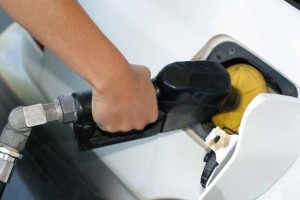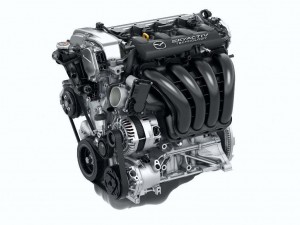Hoping to save a few cents whenever it’s time to fill up your fuel tank? You may be wasting your money in the long-term.
Some bargain brand gasoline blends fall short when it comes to adding the detergents needed to keep your engine running smooth and clean, warns a new AAA study. And that can translate into lower mileage, increased emissions and poorer performance – never mind added wear on your car’s engine.
“AAA was surprised to learn the extent to which detergent additives impact gasoline quality,” said John Nielsen, AAA’s managing director of Automotive Engineering and Repair. “By selecting a quality gasoline, drivers can minimize engine deposits, increase vehicle performance and improve fuel economy.”
(Surging truck sales hurting U.S. fuel economy. Click Here for the story.)
Since 1996, federal rules have required gasoline refiners to add engine-cleaning additives. While some meet the minimum standards, others use additional detergents and other chemicals designed to prevent deposits and keep engines running smoothly.
The new study used an independent lab to test what happens when using various blends of gasoline, some with added detergents, others just meeting the federal standards. Lower-quality fuel, the study revealed, can leave as much as 19 times more deposits on engine intake valves after just 4,000 miles of driving.
Reformulated fuels can make a big difference, according to research conducted by Michigan State University. Better blends can cut internal friction, especially in cylinders and piston rings, by as much as half, said MSU mechanical engineering professor Harold Schock, who was not involved in the AAA study.
Some companies have been promoting their additive-rich fuels. Shell, for example, launched a national media campaign when it introduced its NITRO+ blend a year ago. But such gasoline blends tend to add a few cents more per gallon to pump prices.
And that’s apparently a turn-off for the majority of American motorists. A consumer study by AAA found 75% of drivers picked a gas station based on its location, with 73% opting for the station with the best price. That’s reflected in the popularity of such online services and smartphone apps as GasBuddy, which help penny-pinching drivers locate the best deals.
Only one in eight motorists pick a gasoline brand based on the detergents and additives used, found AAA. More than twice as many are likely to be loyal to a brand that offers a good rewards program.
But the auto club said motorists should consider the long-term benefits of using so-called TOP TIER gasoline brands because they typically boost prices by just three cents a gallon.
(Carmakers want relief from tough 54.5 mpg CAFE standard. Ruling could come within days. Click Here for the latest.)
The TOP TIER program has the backing of a wide range of automakers, including BMW, Fiat Chrysler, General Motors, Honda, Mercedes-Benz and Volkswagen. It is designed to promote the increased use of engine-cleaning additives. There’s a benefit to manufacturers who may see reduced engine wear and longer life for emissions control systems – translating into lower warranty costs and increased customer satisfaction.
The good news, according to the study, is that motorists can actually reverse some engine damage by switching to better fuels.
“Fortunately, consumers can reverse some engine deposits simply by switching gasoline brands,” said Greg Brannon, AAA’s director of Automotive Engineering. “After a few thousand miles with TOP TIER gasoline, performance issues like rough idling or hesitation during acceleration can often be resolved.”
Refiners often use the most detergents in their premium gas grades, and studies have long found many motorists will try to “baby” their vehicles by using higher octane blends than are needed. But most experts say the best practice is to simply use the octane rating called for in the owner’s manual.
(VW confident it can fix 85,000 vehicles with 3-liter diesel engines. Click Here for more.)


